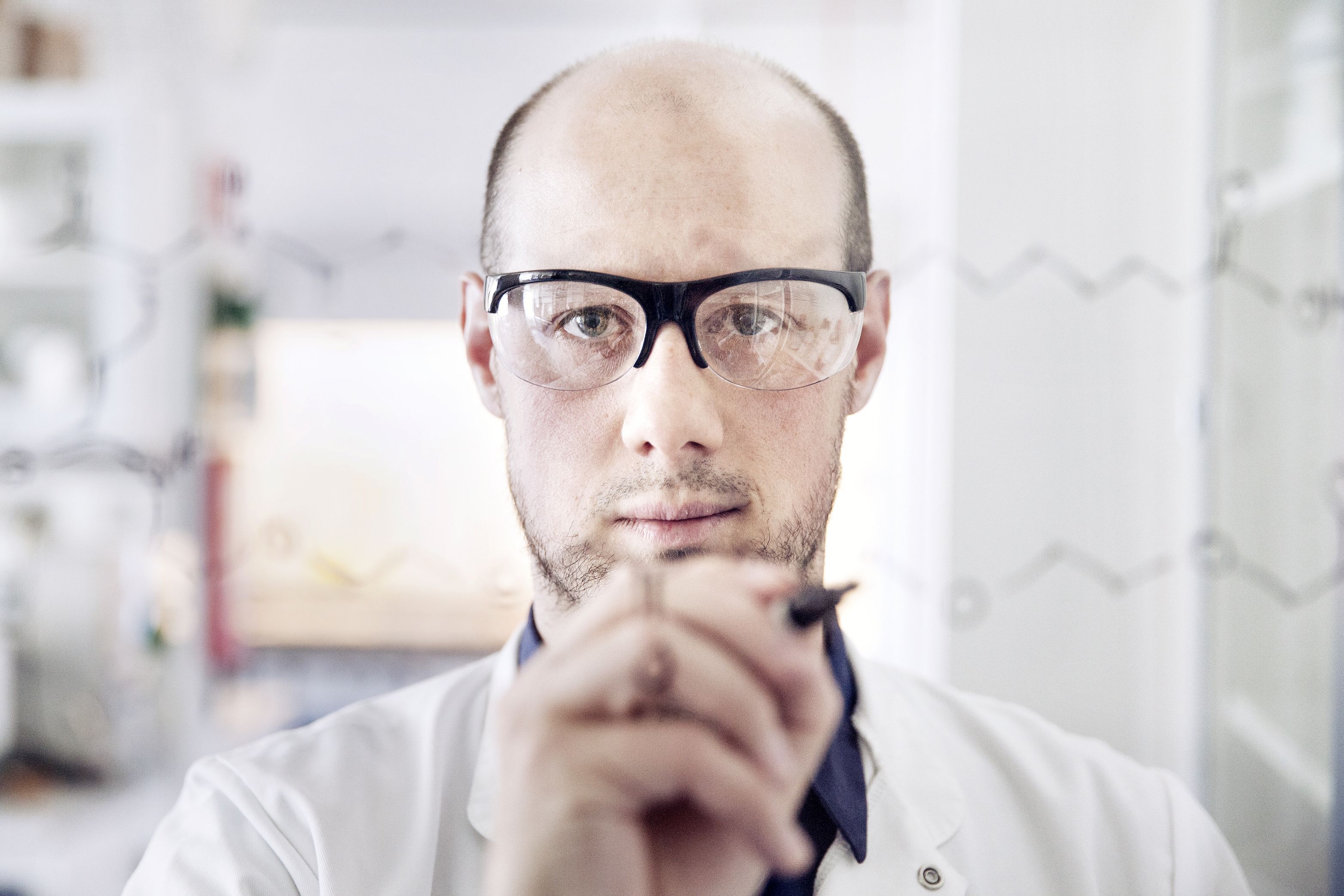What is your job title and what does a typical day at work comprise?
I am a research scientist in the diabetes research unit at Novo Nordisk. More specifically I work in protein and peptide chemistry. We are the guys who design and synthesise new drugs – of course with the help and input of a lot of other people from other departments.
A typical day at work would start with reading the latest emails, checking the literature for new findings and, most importantly, checking if there have been interesting new results from our in-house tests. Then I would either work in the lab, go to a meeting or sit down at my desk and think about interesting new things to make.
How long have you been at Novo Nordisk and what were you doing before?
I have been at Novo Nordisk for about two years now. This is my first ‘real’ job; before I have been working at different universities in Germany, the UK and the United States (Ludwig Maximilians University in Munich, Oxford University and the University of California in Berkeley) as a PhD student and as a postdoc.
Novo Nordisk recently came in second place in the Science Careers Top Employers Survey. What do you think makes a good employer in the scientific field?
I guess most researchers are interested in the science part of their job, so a good employer gives its scientists trust, freedom and resources to do good and innovative research, rather than forcing people to do what everybody (or at least the competitors) are doing. Additionally, a pleasant working atmosphere and a challenging but realistic workload creates motivated employees.
I can imagine that Germany and Denmark are in some ways similar and in others very different – what are the most striking similarities and differences? Was there anything about working at Novo Nordisk, or working in Denmark in general, that surprised you when you started?
Having also worked in the UK and the US, I must say that Germany and Denmark are the countries where the mentality is most alike, but of course there are differences. I personally feel that there is very strong consensus-culture in Denmark.
From Germany I am used to much harder scientific discussions, where people tend to immediately point to the possible problems of new ideas. This is not to talk other people’s ideas down or to prevent innovation; it is rather intended to prevent someone from following a path that has not been completely thought through.
Through talking to many devil’s advocates you just sharpen your ideas, but it is important not to take scientific critique personally. Here, people focus much more on the positive side and you are very much encouraged to try and to pursue new ideas. Both approaches work and both have their upsides, but I sometimes miss somebody telling me “I think this is a bad idea …”
Denmark markets itself as being a good environment for research and science – in your opinion, does it succeed in attracting and retaining the best brains?
There surely is a good environment for research and science, which can be seen by the success of companies such as Novo Nordisk, but I think it is maybe a little short-sighted to only look at Denmark.
Although this idea is maybe not too popular in all parts of Danish society, I think Denmark has to open up more towards Europe and not only focus on the possible downsides of a pan-European labour market. I think that surprisingly many Danish politicians talk way too much about welfare tourism (how big of a problem in Denmark is it actually?) and not enough about the opportunity to welcome much-appreciated highly qualified people. Denmark already has the strictest immigration policies in the EU and I think the country should be cautious not to scare the wrong people away.
On the other hand, many innovative Danish companies are doing an excellent job in providing attractive jobs, which is the key to getting and retaining the best brains. And one other thing – one should not be afraid of the high taxes. Scientists do not choose their job primarily for the pay, and if you look at the whole package (tax, health insurance and social insurance), the German tax burden is not lower than the Danish one – at least if you don’t earn several million a year.
What do you like most about working for Novo Nordisk?
I like that I have the freedom to try my own ideas in exciting projects, and besides this there is also time for a private life.














